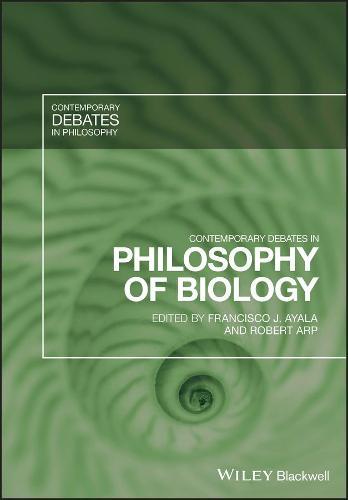Full Product Details
Author: Francisco J. Ayala (University of California, Irvine, USA) ,
Robert Arp (Independent Researcher)
Publisher: John Wiley and Sons Ltd
Imprint: Wiley-Blackwell
Dimensions:
Width: 17.30cm
, Height: 2.70cm
, Length: 24.70cm
Weight: 0.771kg
ISBN: 9781405159999
ISBN 10: 1405159995
Pages: 440
Publication Date: 13 November 2009
Audience:
Professional and scholarly
,
Professional & Vocational
Format: Paperback
Publisher's Status: Active
Availability: Manufactured on demand

We will order this item for you from a manufactured on demand supplier.
Reviews
A very fine contribution to the pedagogical literature on philosophy of biology. The editors are to be congratulated for the thoughtfulness that went into producing this text. May it gain the wide acceptance it deserves. (Science & Education, March 2010)
" “All chapters (including the very interesting contributions on the species problem by Claridge and Mishler, as well as the stimulating papers on evolutionary ethics by Ruse and Ayala) serve as an excellent introduction to the most hotly debated topics in the philosophy of biology today.” (Metascience, 2011) ""A brief review like this can scarcely do justice to the richness of the ideas discussed in this text or the considerable care that went into its organization. This is, in short, a very fine contribution to the pedagogical literature on philosophy of biology. The editors are to be congratulated for the thoughtfulness that went into producing this text. May it gain the wide acceptance it deserves."" (Science & Education, 2010) ""Highly recommended. Lower-division undergraduates and above"". (Choice, 1 November 2010) “Contemporary Debates in Philosophy of Biology is an engaging anthology with many interesting contributions. The strength of the book is the format: two eminent representatives of the biophilosophical community have their say on a pivotal biophilosophical issue.” ( Metapsychology, May 2010) ""A very fine contribution to the pedagogical literature on philosophy of biology. The editors are to be congratulated for the thoughtfulness that went into producing this text. May it gain the wide acceptance it deserves."" (Science & Education, March 2010)"
Highly recommended. Lower-division undergraduates and above . (Choice, 1 November 2010) “Contemporary Debates in Philosophy of Biology is an engaging anthology with many interesting contributions. The strength of the book is the format: two eminent representatives of the biophilosophical community have their say on a pivotal biophilosophical issue. (Metapsychology, May 2010) A very fine contribution to the pedagogical literature on philosophy of biology. The editors are to be congratulated for the thoughtfulness that went into producing this text. May it gain the wide acceptance it deserves. (Science & Education, March 2010)
Author Information
Francisco J. Ayala is Donald Bren Professor of Biological Sciences at the University of California, Irvine, USA. He is a member of the U.S. National Academy of Sciences, the American Academy of Arts and Sciences, and the American Philosophical Society. In 2001, he received the National Medal of Science. Ayala has published more than 950 articles and is the author or editor of 31 books. He has been named the Renaissance Man of Evolutionary Biology by The New York Times. Robert Arp is an analyst at The Analysis Group, LLC who has interests in philosophy of biology and ontology in the informatics sense. He is the author of Scenario Visualization: An Evolutionary Account of Creative Problem Solving (2008), and co-editor of Philosophy of Biology: An Anthology (Wiley-Blackwell, 2009).




